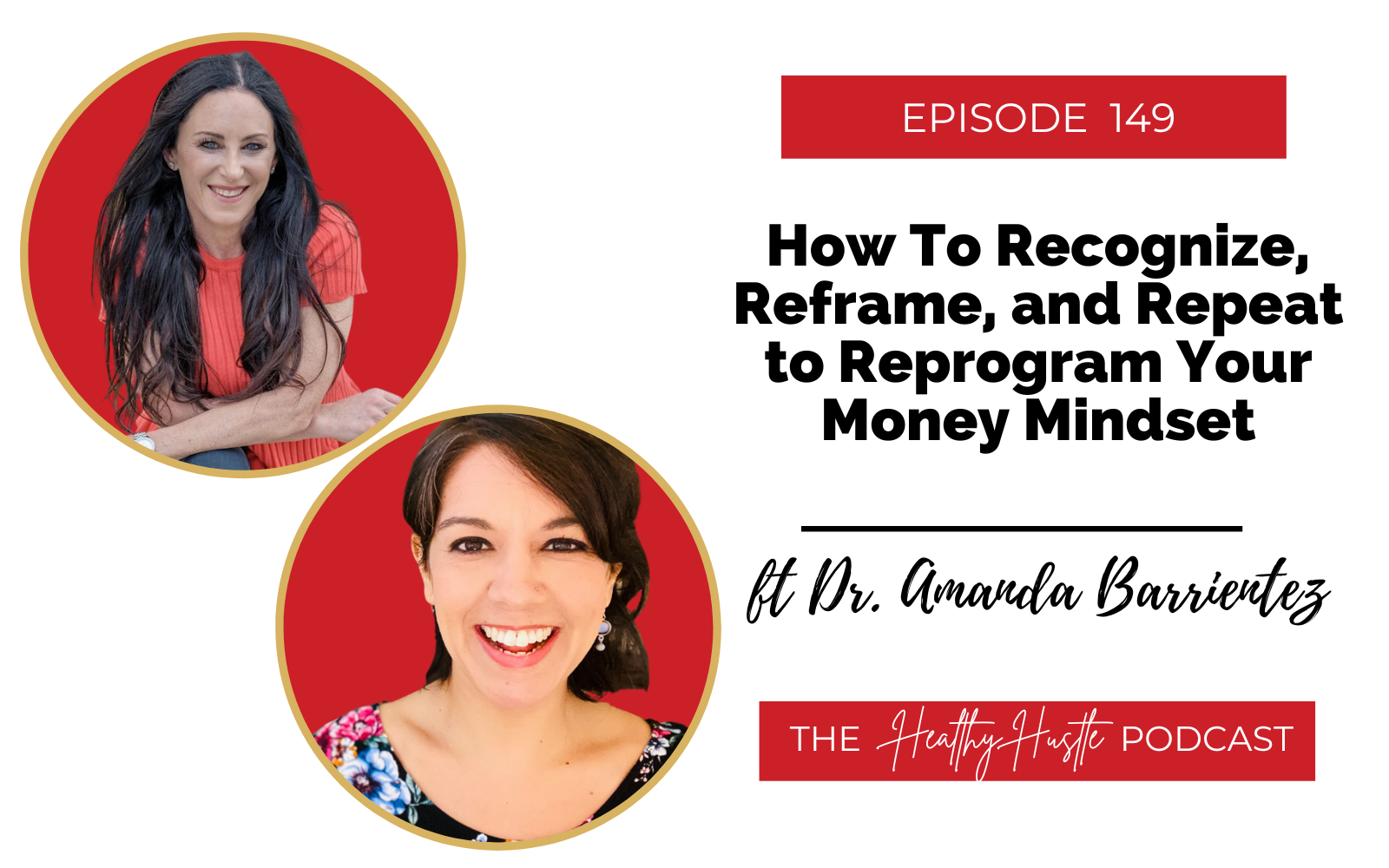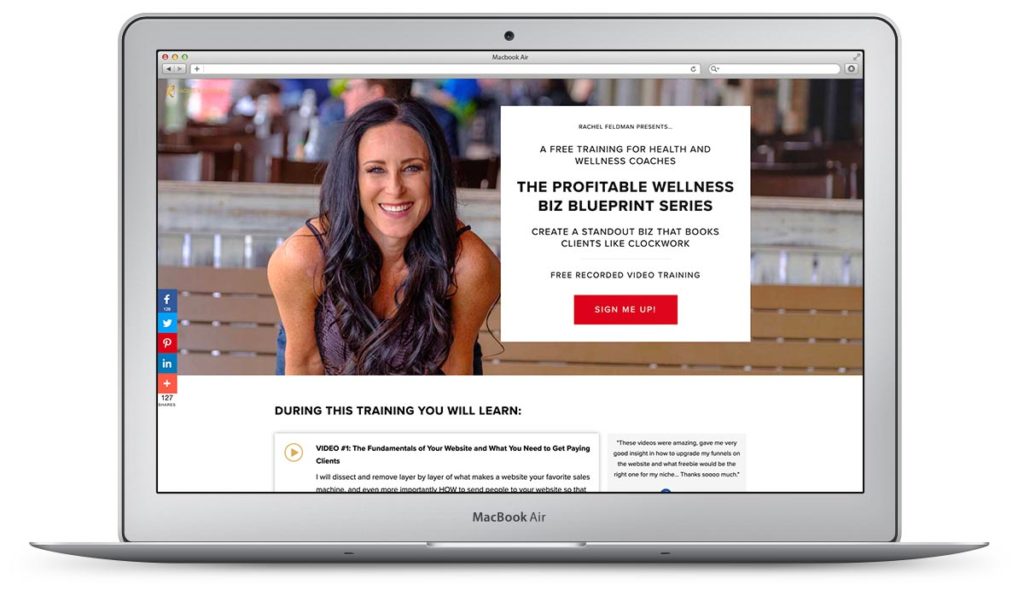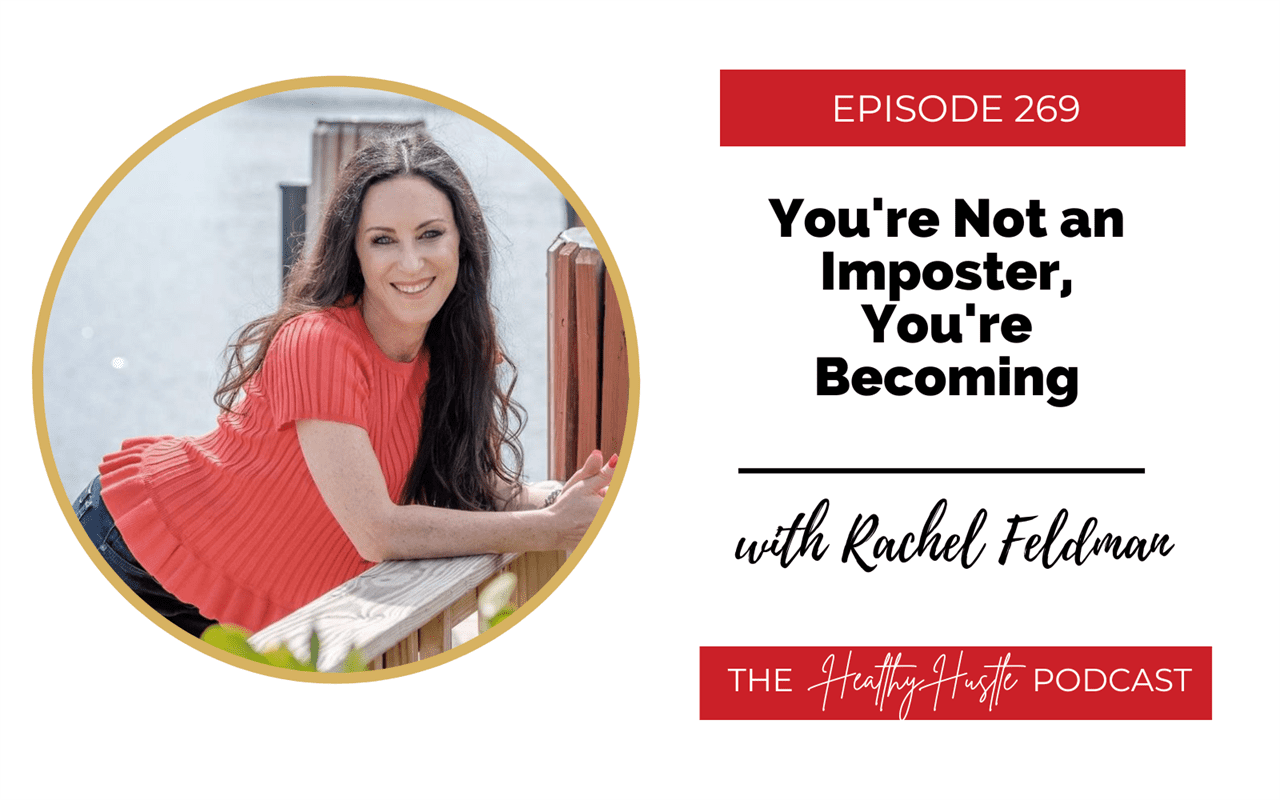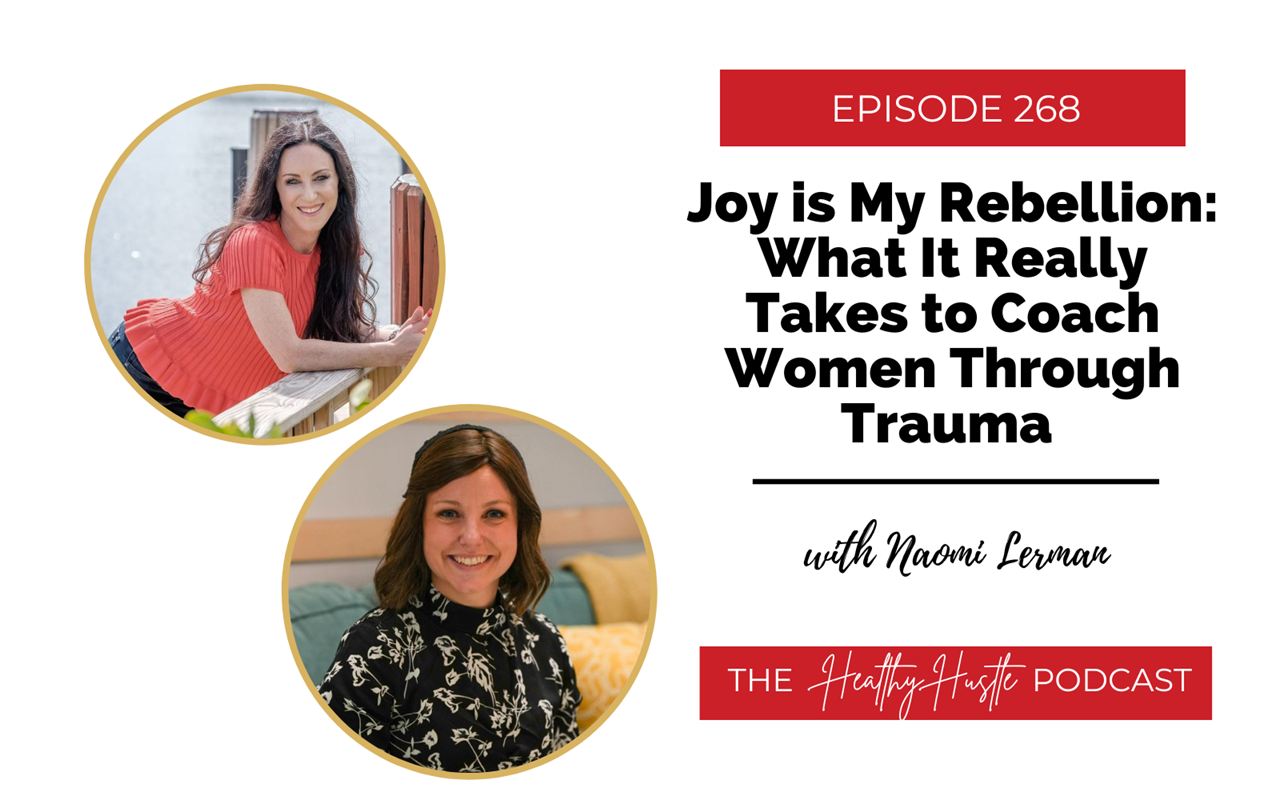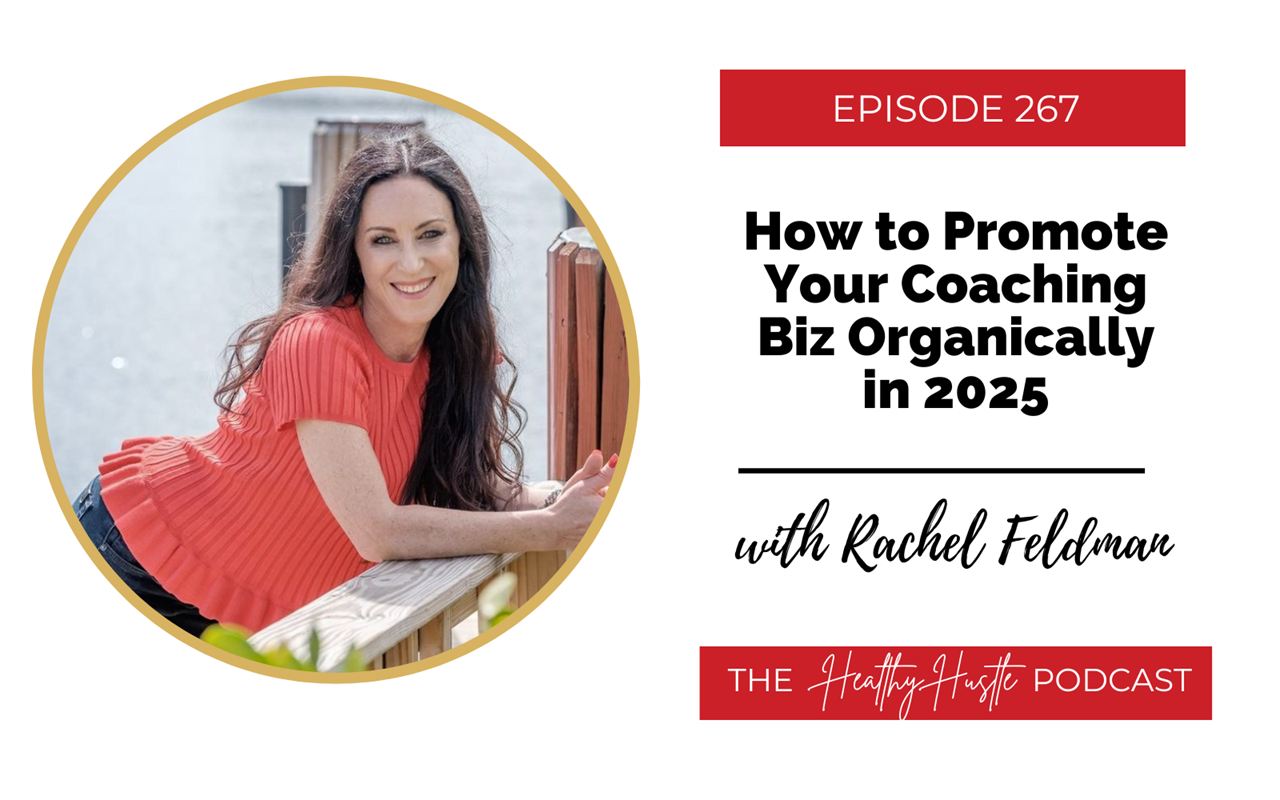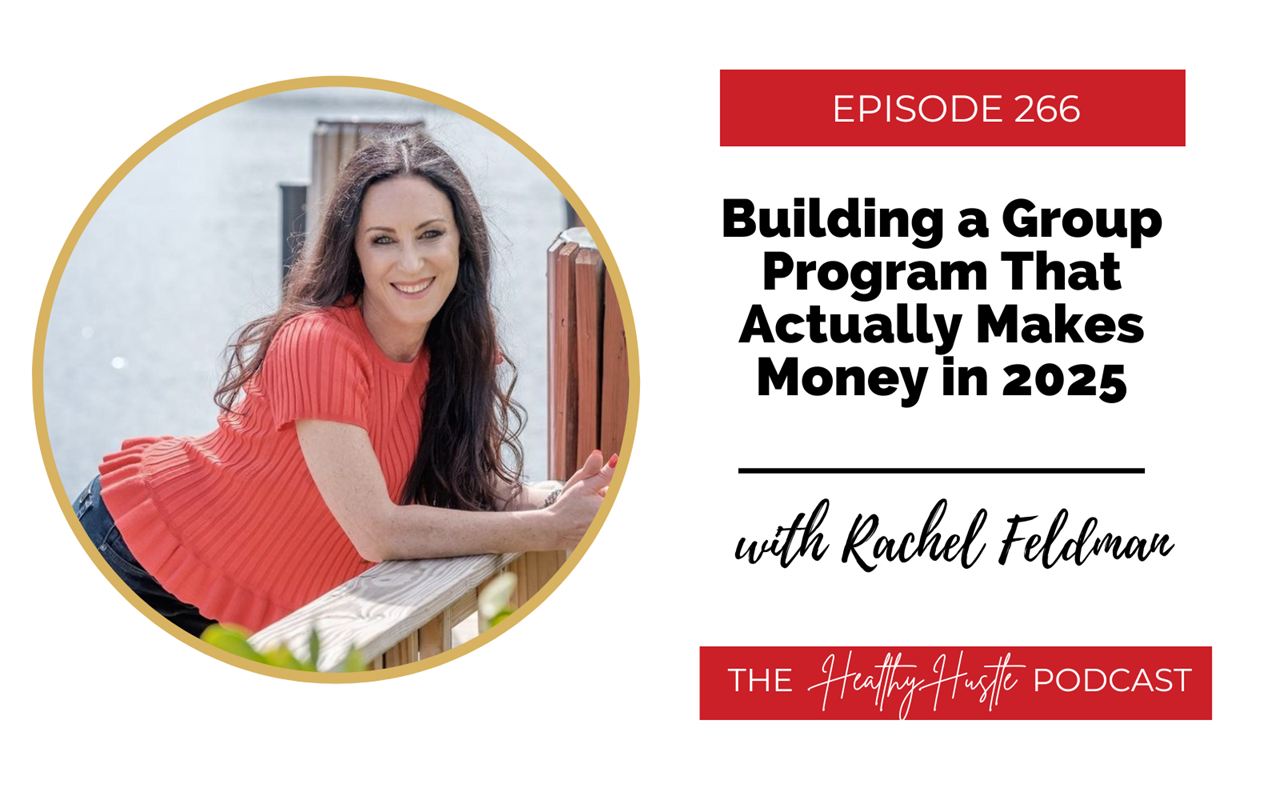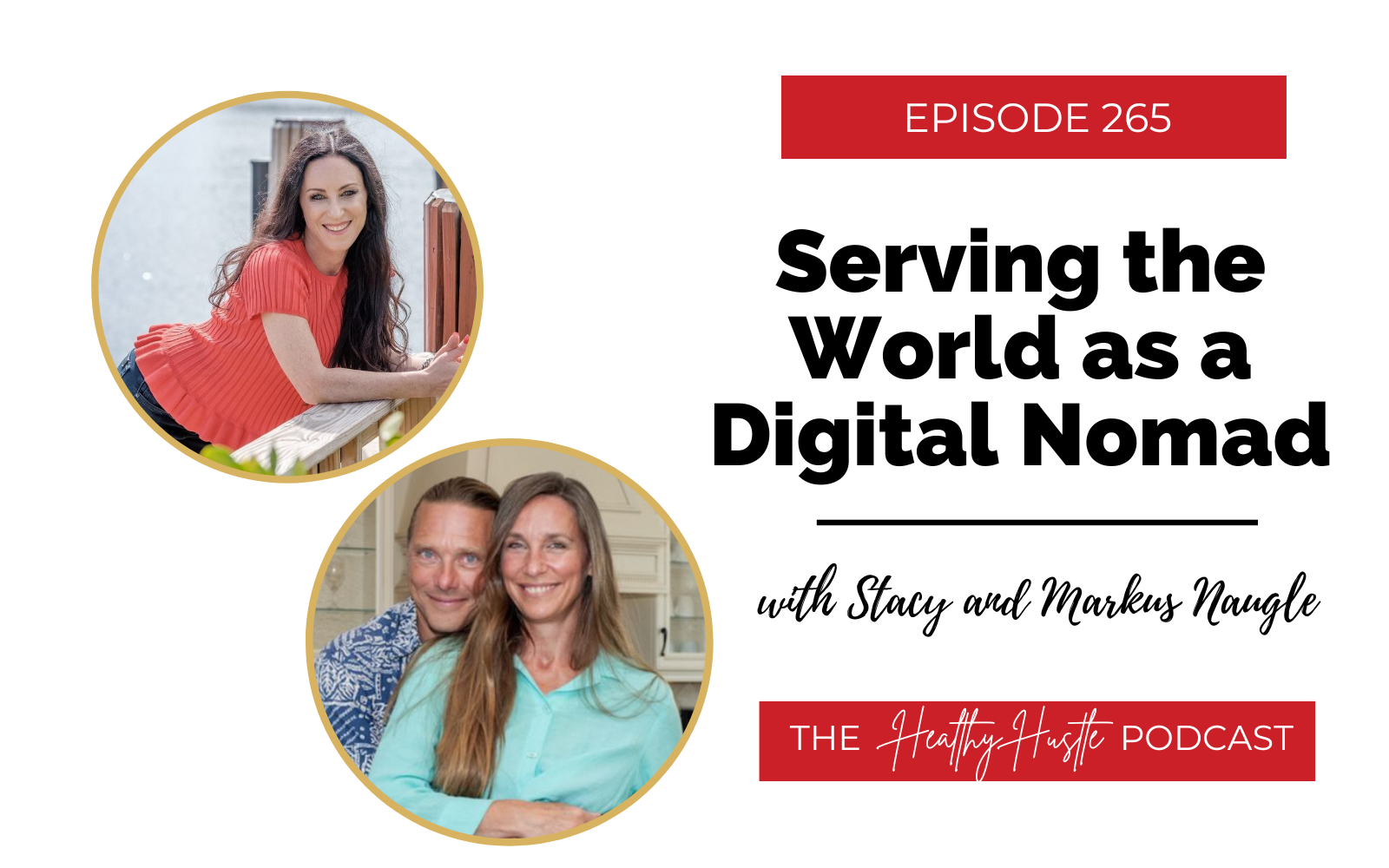We’ve all got money problems. Whether you’re overspending, nurturing a fear toward it, or not making enough you’re probably wondering why you’re stuck when it comes to wealth and what you can do about it. Well, guess what? Your mindset around money has everything to do with the flow of money towards you (or lack thereof!).
Today’s amazing guest is known as “The Money Healer,” and she is sharing her best tips and tricks on adjusting your money mindset that are easy to digest and easy to implement.
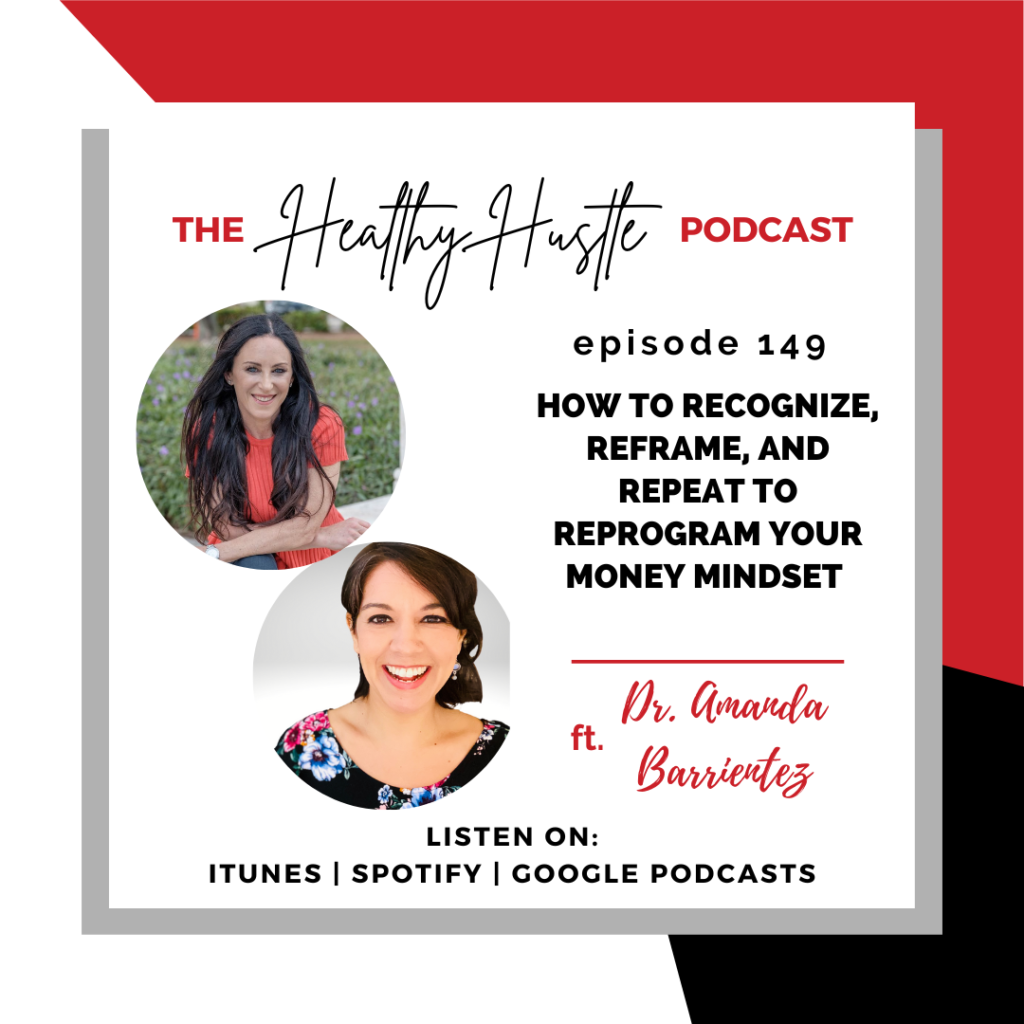
Dr. Amanda is the founder of NFA – No Fucking Around – Money, the host of the NFA Money YouTube Channel, and she’s been featured on over 150 podcasts. She’s gone from food stamps to building a 6-figure business, and Dr. Amanda’s been on a quest to teach entrepreneurs how to transform their relationship to money so they can make easier money!
After listening to this episode, you will have fallen in love with her and her money mindset frameworks just as much as I have.
Connect with Dr. Amanda:
Website: https://www.nfamoney.com
YouTube: www.YouTube.com/NFAMoney
Instagram: www.Instagram.com/NFAMoney
LinkedIn: www.linkedin.com/in/NFAMoney/
Facebook: www.Facebook.com/NFAMoney
Rachel: Hey guys, I am super pumped. I was just saying to Dr. Amanda in our introduction before recording how excited I am to have this woman on the podcast. I have to tell you I’m in love with her Reels. You have to follow her on Instagram. This is not even the end of the show. And I’m telling you, you have to follow her.
But without further ado, I’m going to introduce Dr. Amande because today, we are going to talk about all things money. Amanda, can you tell everyone a little about yourself?
Amanda: Yes. I’m so excited to be on with you, Rachel. Thank you. So I’m Dr. Amanda. I’m known as the money healer, which is a really fun story, actually. I always do money stories with my clients. And I had this group of siblings, and they were doing their money stories together. And they were having these huge transformations in their family. And we were at the closing session and I was talking about what happened for them over the 12 weeks. We were working together and they’re like, the best way I can describe it is that you’re a money healer. And I was oh my god, I love that. That’s amazing. It made me so happy.
So that’s really what I love to do. I love to help people heal their relationship with money so that they can make any amount of money that they choose and feel really good about it. Because money brings up everything like shame, fear, doubt, excitement, infatuation, and resentment. We could probably attach every emotion to money.
For me, I went from food stamps to building a six-figure business in its first year. So I know a lot about being stuck in survival, feeling super afraid. And having a very poverty consciousness mindset and feeling really victim to my surroundings, and then completely shifting through doing mindset work. And I realized most people don’t know this stuff. And everybody needs to know how to shift their mindset so they can get what they desire.
What Wealth Shame Means & Where It Stems From
Rachel: Well, it’s interesting, I have a completely opposite story. I came from a family of money. And there was shame in that and I know that that shame was passed down. I was just saying to my mom the other day, I need to mend my relationship with money. Because I go into this shame part. And I know that it has just been handed down. So I was really interested in hearing some of your tips and tools. Because I think a lot of people have money problems, whether they’re overspending it or they have fear about it, or they’re not making what they want to and why they’re stuck.
Amanda: I love that you shared this because here’s where we go. Shame attached to money, pretty much across the board, happens. It can come from oh, I’m not enough, from being impoverished. Or I have wealth shame because I don’t feel like I deserve it. Or I didn’t earn it. A lot of people have that issue. So I’ve worked with people across the spectrum.
I remember sitting down pretty early in my journey with this woman who was a mega-millionaire. I don’t know how many millions she was worth but a lot and she was really young. She was a real estate investor in a business that had been passed down from her dad who was really successful. But she really struggled with wealth shame. She’s like, Oh, my God, I don’t have any friends. I hide how much money I have. It’s weird because everyone else is working but I don’t have to work every day. And I was very intrigued by that.
So you grow up with some money, whether it’s inherited money, and there is even more shame. A hard thing for me to learn was that a work hard mentality is not going to get you the money that you deserve to have. It’s not going to come with flow needs.
Rachel: Yeah, I think that’s the part that I witnessed in my family.
Amanda: Yeah, right. Because here’s the thing, money doesn’t solve anything, it doesn’t make you happy. You can have buckets of money, millions and not feel good about it. You could equally be very impoverished financially. You could have be broke, but feel great. Sometimes people say you could be poor but feel great. But broke is the mindset. Where your mindset around money is is really what matters.
How To Adjust Your Mindset Around Money Flow
Rachel: So tell me, how does this mindset about working so hard take away from your money flow?
Amanda: I would say it’s probably the more women I work with, and entrepreneurs in general, that think, I’ve got to work hard to make money, or I’ve got to work hard to hold up an appearance. It could be related to, I’ve got to create a successful business to prove myself. So I’d say the most deeply rooted part is I’m not enough and I’ve got to prove myself. And that’s why we work too hard.
Rachel: Man, that was something that I had to deal with face to face this past few years. Because as we came out of this uncertain time, what I did was overworked. What I realized is that was an addiction that I had, and I’ve worked on it and created healthy boundaries. But it really came from not feeling that self-worth and to prove myself. Because I always had bad grades in school. I had a learning disability. But that was way before they ever figured that stuff out. And that has shown up in my work and my money flow, because you’re in that desperation to prove yourself that money flow is not going to happen.
Amanda: Totally. Even if it does, it doesn’t fix the problem. I’ve seen people at both ends where the money flow doesn’t happen, because they’ve got those unconscious money blocks, or the money flow happens, but it doesn’t fix the hole that they’re trying to fill. So then other problems get created.
It all goes back to your worth. How you feel about yourself is going to be a reflection in your money, and the way you feel about your money. One of the reasons I love working with money is because I always tell people, your outer world is a reflection of your inner world. If you don’t like what you’re getting on the outside, you’ve got to change what’s within.
On the outside, money is a reflection of the insight that we feel about ourselves. Money is just a relationship. You have a relationship with money. So if you feel shame about money, it’s going to cause wonkiness in your money flow. Sometimes it’ll be that you get a whole windfall, but then you don’t spend, invest, or save it well, and then you feel more guilt and shame because you think, I’m not responsible with money. Then you go, Oh, no, I don’t know what to do. So all kinds of wild stuff gets created in these ways when we have those worthiness issues at the root of the issue.
Rachel: So would you say the majority of people that work with you in your 12-week program are diving into the mindset and they didn’t even know they were gonna dive into mindset?
Amanda: I’d say originally, yes, they did. Now it’s so obvious. I have a really cool mastermind called the NFA Money Mamas. So my company name is NFA Money. NFA stands for no fucking around. And so I have an NFA Money Mama Mastermind. To start in the mastermind, they get walked through a 12-week course that’s called Reprogram Your Money Mindset. Because it’s the core of everything.
If you don’t start there, you’re going to always build a business that’s out of alignment. Unless you’re one of those people that’s already in alignment, which is very, very rare, the only people that I see that are pretty consistently in alignment are people who have done this type of work. And it’s a lifelong journey for them.
Rachel: If somebody is out of alignment, what are the characteristics that show up in their business and really, their life? Because your business is a mirror of our life.
Characteristics To Look Out For If You’re Out Of Alignment
Amanda: That’s a great question. Some of the symptoms would be anytime you’re feeling overwhelmed, exhausted, proving yourself, which could look like waking up in the morning and feeling I’ve got to do so much to show people, you’re not gonna have this conscious thing when you wake up in the morning to be like, I gotta prove myself today. Instead, it’s going to show up as overwhelm. Usually it’s, I’m overwhelmed by doing things I don’t really want to do that aren’t really what inspire me. So they work hard thinking, I’ll do this hard work to make enough money to then get to do the things I really love to do.
So I see that a lot of people are not in their zone of genius. They’re being told what they should do to build their business by other people who they have negatively compared themselves to. So they go, Oh, this mentor has the answer because she is doing this awesome stuff in the world. And they know the answer, but I don’t. So I’m gonna do what they told me to do. But then it doesn’t really feel that good. And you just keep doing that. And what you do is create a prison out of your business, right? Then you wake up every day just going, this isn’t worth it. And I don’t enjoy this and why am I even bothering?
Simple Steps To Find Alignment & Support
Rachel: Are there some simple steps that our listeners could takeaway for when you feel like you’re in that prison or you have reached out and hired a coach and they’re telling you to do things that don’t feel in alignment? What do you usually suggest?
Amanda: Well, first, I’d say when you are hiring someone, make sure that they model what it is that you desire to create. So if you’re hiring someone who’s in Instagram DMS like, I can help you do this in five weeks and scale to $7 million. And it’s like, dude I didn’t ask for that. And is that in alignment with anything I choose to do in the world?
I think one thing that people really can walk away with first is –this is gonna sound so simple but it’s one of the best tools that I have – sit down and in your journal, write down what do I absolutely love to do? Write down every single thing and I want you to look at the last week to month of your life and write down everything you love to do and everything that brought you joy, everything that brought you energy, everything that made you feel like yes, I want to do more of this. And I want to wake up and take the world by storm. Those things are the things that you want to keep doing more of.
Then on the other side, take two sheets of paper or the other side of your journal, and write down things that drain my energy or I hate doing. Write down every single thing on that list and give yourself permission to be honest with yourself. Don’t think about what this list is going to do or where it’s going to take you or what you’ve got to do with it. Just start there and get honest with yourself.
The NFA Money Formula
The NFA money formula that I came up with is three steps. Number one is recognizing –and this is a recognition process by doing this exercise –where you’re at because it’s impossible to get where you want to go if you don’t know where you’re at. So you’ve got to recognize where am I out of alignment? And where am I in alignment? I love to do that part.
You want to start doing more of this because your feelings are your guide to manifestation consciously. If you feel good about something that’s automatically raising your vibrational frequency, which is automatically attracting easy money to you, and write the things on the drop side, you want to start to do the things you hate or that are draining your energy. You want to drop, automate, or delegate.
So the next layer of that list is next to it. Do I drop this because it’s something someone told me I should do that I don’t really need to be doing? You could automate it through a system or you could delegate it to somebody else, and just start that list. You don’t have to do anything with it immediately. Just start it to start. Just recognize if you’re out of alignment.
Number two for the NFA Money formula is reframing. So you’re gonna reframe everything in your mind or your actions. So that drop, automate, delegate list is the part where you’re gonna start to reframe and go, if I hate doing something, what can I drop?
The principle that I teach is, you can’t get what you want doing what you don’t want to do. So you’re going to have to choose to drop it. Okay, so which one are you going to start with first? Is it hiring a social media VA? Is it letting go of a couple social media platforms? Because I’m on too many, and it’s overwhelming me. I’m going to hire a housekeeper so I have two extra hours per week to work on doing something I really enjoy doing in my business. There’s lots of ways to delegate.
Number three, you’re going to repeat to reprogram. This is simple and exactly what I did in my own mindset to start to completely transform everything they’re doing in their business. It’s how I teach everybody and it’s the simplest formula. So it’s recognize, reframe, repeat to reprogram.
So if you do this drop, automate, delegate list and love list, and you really get conscious of these things and start playing with it, what will happen is that you’ll notice over time, let’s say, a month of doing this, all of a sudden, you start to wake up and you go, I’ve got a map to what I love doing. I’m going to start doing more of that.
Then you start to elevate your frequency. Then you start to attract easier opportunities your way and you start to plant the seed of belief that maybe I don’t have to work hard to make money. Maybe it could be fun, and you start to have evidence of it and your reality, and then you want to do more of it. So just start there.
How To Recognize, Reframe, and Repeat to Reprogram
Rachel: I think it’s that classic sign that we’re scared to let go of what’s not working because that’s such a mindset shift. What do you suggest for that person who may love doing social media at one time, and now social media just drains them, but they’re scared to let go and delegate?
Amanda: Usually what we do, is we think we’ve got to drop things completely. Whereas I would start asking what could be tweaked here? I’ll give a story as an example. I did this with my podcast. So I had a podcast for a couple years. That was rocking and rolling. But I started to get bored with it and I also wasn’t getting a ton of engagement. I was like, I don’t like to speak for no one, or is this making a difference?
So I had this weird idea of, oh, maybe YouTube is the way to go. So I really pivoted, I dropped my podcast completely. I left it there so that people could listen to it, but didn’t add anything. And for eight months I pivoted to YouTube, and then I started to be I know, I never really was that into YouTube.
What I realized was what I could have done is just changed what I was doing on the podcast and I could have refreshed and gotten it more aligned. So I just recently relaunched my podcast and I’m loving it. I’m like on fire. I can’t sleep. I’m excited.
So I would ask everyone what they want to do first, then consider what they don’t like about it and get clear there. Is it the whole thing? Is it the posting? Do you love making videos? Well, you could create videos, put them in a file and have someone else post them for you. If it’s that you don’t like to even make the videos, you could take content from something you’re creating that you do enjoy and have a VA create content from that and repurpose it.
It might not be that you need to drop it all together. It might just be slight tweaks that you need to make. For me, I look back and realize, I could have just tweaked my podcast instead of completely abandoning it.
Rache: I love that personal story. Whenever I’m listening to a podcast and somebody brings in a personal story, especially one where it’s in hindsight, it really resonates.
Amanda: So I’ve done that many times. I’ve learned, Okay, wait, slow down. Questions. Instead of just going, Hey, I hate this, and I don’t want it. Well, what do you not like about it?
This comes from when we feel overwhelmed from not knowing what decision to make. I mean, for sure, there are times when I feel uninspired by what I’m doing. It only takes really a shift of mindset to realize we were looking at this all wrong. Or it takes me delegating something because some things become tedious and boring.
Why You Have To Slow Down To Speed Up (& How To Do It)
Rachel: As creators, you’re gonna get bored. So you’ve got to keep tweaking stuff. Otherwise, you do want to abandon it because it can be redundant to teach the same things every day that you already know really well. But it’s new to the people you’re attracting.
So how can you play in this place of going it’s new and exciting to somebody who’s never heard this before and if I really want to gain traction and momentum in my business, I don’t want to have shiny object syndrome keeping me going all over the place.
I’ve had that in the past. I’ll get bored and then I’m like, but wait, how can I tweak either my thinking around it to help people in new ways? Or I go Okay, what if I could take this program and break it up differently, instead of starting all over?
Amanda: I would say, this is a really important one, slow down to speed up. What that means is slow down enough to reflect on that place of recognition. You’ve got to recognize what you don’t like about it. Are there certain tweaks I could make?
I was listening to podcasts that I can’t remember who it was, but they were saying they had a friend who had decided to leave her multimillion-dollar business. She just was done. But she was seven years old. She’s like, I’ve made millions, it doesn’t align with me anymore. That’s where you got to really be courageous and go, I trust that something else there is better for me next, because I’ve lost my inspiration for it.
So you’ve got to start asking these questions and absolutely hire a coach to help you. A good coach can help you determine whether this is burnout, or whether this is really not in alignment for you anymore. Often it’s helpful to have someone have that outside perspective.
How To Reframe Your Perspective & Work Through It
Rachel: We talk about reframing. What really worked for you when you’re reframing something?
Amanda: I’ll see the simplest things, like when I was on food stamps, and I started shifting my values to wealth building, I would just reframe everything through basically simple affirmations.
What I realized is that I had a mindset that was really driven toward negative thinking. We all are because we’re animals. We live by the pleasure-pain principle and that means that we’re geared for survival. So we remember negative things eight times more easily than positive things. So you actually have to train your brain to be positive, which seems counterintuitive. We’re not born positive, actually, we’re born to look and scan our environment for things that could threaten us. So we’ve got to start to train our brain in the direction of seeing it differently.
I started with simple affirmations. One of my favorites was I’m a money magnet. Everything I touch turns to gold. I put it on my phone and I said it because it was believable to me because I started looking for evidence of it. I’d find a penny on the ground. I’d be a magnet. Everything I touch turns to gold, and someone would take me out to dinner unexpectedly. I’d be like I’m a money magnet, everything I touch turns to gold. I just kept repeating that and I just use really simple affirmations. Another one is, I am in my phone so I put alarms every hour saying, You can get to six figures in your business. Come on Amanda! I even put my name on there. Go, Amanda! You’re getting to six figures in your business. It was so fun. I love doing stuff like that because it’s just that little reframe in your mind of like, oh, yeah, I don’t need to worry about impostor syndrome. I’m getting there. I can do it.
Rachel: I love that. What are tricks that you use these days? Is it still the same affirmations or similar?
Amanda: I definitely alter them to fit whatever phase of growth I’m in. It’s definitely changed since I started but one of my favorite ones now is work less, make more, have fun. I align everything I do from that. I go, okay, is this project filled with joy? Is it simple? Is the design in alignment with my zone of genius? Is it just bringing me fun and joy? If that’s a yes, I’ll do it. So it’s always an alignment principle of okay, am I working less, making more and having fun?
Rachel: How did you come up with your business idea for NFA? And the name?
Amanda: Oh, it’s a fun one. So actually, it started in high school, I was a swimmer and volleyball, then I started swimming, and I was doing awesome. So I quit the volleyball team, but I wanted to play volleyball. So I was like, Ooh, Dad, there’s a rec league, but it was for adults only. The rules were that you just had to have one adult. So I’m like, Dad, you be the adult, I’ll get all my friends and we will kick ass. He’s like, Sure. So I named our team NFA. Of course, you’re not allowed to swear when you’re a kid. So everyone guessed what it was. But it was like cheap enough. And then my sports teams after that were team NFA.
One day, I was working with a client and he was like this is so helpful. You’re really like my tough love dad, but you’re also really soft and sensitive. I said, Well, I’m really happy. I’m not fucking around about your results because I care about you. Then I shared this story. I decided to name my package NFA Transformation. I put it on my bio, and someone reached out on Instagram and she’s really well known. You probably know her, Tiffany Carter of Project With Tiffany. She reached out and I said, food stamps to six figures. NFA Transformation. And I said what it was, and she’s like, that’s awesome.
So she invited me on her podcast and we were having this conversation, and she’s like, that is an awesome name. Have you ever thought about branding your business as that? I was like, an F word in my business would be crazy. I stayed up all night. I didn’t sleep that night thinking, should I do it? I got up in the morning and was like, fuck it. I’m doing it. So that’s where NFA came from.
Why Achieving Success Isn’t Linear, But Spiral
Rachel : So I would love to ask. You talk a lot about reframing this money mindset. You talked about what mindset you needed to change. Do you ever come up where you have some of these mindset tweaks that you still need to change even though you’ve achieved the success that you want?
Amanda: All the time. I always like to tell everyone here, this is a never-ending journey. Part of the reason I have spirals all over my branding is because I love the concept of upward spiral growth. It’s not like you go from point A to point Z in a straight line, upward trajectory. Instead, it’s a spiral upward curve.
At every new part of yourself, you’re going to quantum leap to the next level through expansion. So it never ends. I come up against money blocks all the time. People are going to experience this when you get married, or you have kids, or you get to the next level in your business, or death happens, or you get inherited. I mean, we could go down the list.
You’re going to always uncover new unconscious parts of yourself because we have so many money downloads when we’re kids, that gets stored into our subconscious. They get triggered by something and then it can cause issues if you’re not clear about it, It starts to cause what I call, competing commitments where you say you want something, but you get a different result. Because you’re not clear what that subconscious block is.
I had a lot around relationships because I had a really challenging relationship trajectory. I left my 15-year marriage having an affair. That started the whole food stamps situation. I had three kids and I was in grad school and had a lot of money challenges and a hard time in relationships. My next relationship wasn’t working.
So it was I really had this belief that for me, it came up from my fundamentalist Christian upbringing that women aren’t supposed to even make money. They’re not supposed to be the breadwinners, for sure. So it was like, Oh, I can’t have a relationship and make money. Those two things can’t go together. I can’t be powerful as a woman moneymaker, so I had a lot of that to work through. That still can show up sometimes. Definitely, I’d say my number one has been learning how to disentangle myself from that idea of, we’ve got to work hard and hustle hard and go all the time and create stress to make money.
I think a lot of entrepreneurs are going through that right now. Everyone’s probably always going through it. But I think a lot of entrepreneurs are very vocal about it right now. That you don’t have to have that attitude and that attitude just burns us out.
Rachel: Yeah, like I shared in the beginning, that added so much stress and so much burnout that I woke up one day not inspired by anything. It’s not a good feeling to be in, especially when you have a great life.
Amanda: Yeah. But it’s just confusing, because you feel ungrateful, and then you’re told to be grateful. So you’re like, oh, something’s really wrong with me.
Rachel: We’re really working on those core beliefs that I had, and that it was so much about mindset, reframing, and really looking at what I could delegate out. I mean, everything that you said today was exactly where I was. I was successful doing that and still came up against that block that I had.
Defining What Success Looks Like For You
Amanda: Something you just said, it’s so important for people to hear and acknowledge is that you really got to define what success is for you. Because success can look like lots of money in the bank, or it can look like more time with family.
I’ve been playing with this in my mind, do I reframe the word success as prosperity or abundance? If you’re making a lot of money and feel like crap when you wake up in the morning, that’s not success. I don’t want that. I agree with you, I think people are really starting to notice, what do I want? What feels good to me? What brings me joy?
Rachel: We’re in a time where people are really open to seeing how much they can change their mindset.
Amanda: It’s amazing how much you can. It’s mind-blowing to me. And it’s a funny term to use in this case, because it’s really what happens. You like blow your mind, and you reinvent yourself from a different way of thinking and being, and then everything in your reality is created from that place. And it all starts with what do I actually believe?
I like to ask people when they’re going through money stories, what do I believe about money, but one that’s really fun for the conversation we had today is to write down money. Making money is blank. And then just write down whatever comes up and that will give you a lot of indications of it. Is it hard work? Is it easy? Is it fun? Is it scary? Is it right? It’s an indication as to what you believe.
So you just start asking yourself a lot of questions like what do I believe about money making? What do I believe about women and money-making? What do I believe about hard work? Just start playing with yourself more and you’ll see, Whoa, no wonder I’m getting the results I’m getting.
Rachel: I am loving this conversation that we had today. I’m so grateful for you being here. I see that fun is a really important value for you. I mean, you are just so elevated, smile excited.
Amanda: Thank you. And I’m so glad you see that because that’s been something that has come up for me in the last few years, where I was grinding. I was very much stuck in the hustle mentality of and deeply believed you have to work hard to make money, especially as a woman. My first year in business, when I broke through to six figures, I worked my ass off a lot.
There’s also a different mindset between the amount of money that you make, I remember when I had a five-figure month or a four-figure month or a three-figure like all of those different steps. Just the mindset that it takes to then make multiple six figures and going through each of those blocks. Am I going to be able to keep up with us? And do this, all of that, those fears that kind of come up?
Rachel: Totally. Yes. It’s funny, right before you and I got on, I was recording my episode about the zones of manifestation to scale your business roadmap. And it’s getting into the zone of manifestation is where we want to be. It’s exactly what you’re describing. Because when you are thriving and humming and flowing and feeling good doing what you want to do, what happens is you start to care less about the money, and you make more.
I’m not saying you don’t care about money because you love money and money flows to you, but you’re not focused on I’ve got my money. That’s not the focus. You’re focused on. Am I having fun? Am I making an impact? How can I help more people in a way that feels totally aligned with myself? Do I wake up in the morning excited? I needed to play. That’s the life and business I want everyone to create for everyone.
So I just want to thank you so much for being here today. Can you tell everyone where to find you? It’s going to be show notes, too.
Amanda: Absolutely. So all things NFA money, n Instagram, YouTube, my website, and I just released my new podcast. It’s called the woman entrepreneur podcast. So I’m really excited about that. They can do a free biz breakdown session with me if they want to learn more. I’ve got a lot of cool resources. Check it out and definitely listen to the podcast. It’ll get a lot out of it. We had conversations like we had today.
Rachel: Oh, wonderful. Thank you so much. You have to follow this woman, as I said in the beginning of this conversation. She’s got great content, great tips, easy to digest, easy to implement. And clearly you have fallen in love with her during this episode as well. All right, my doctor. Thank you.

